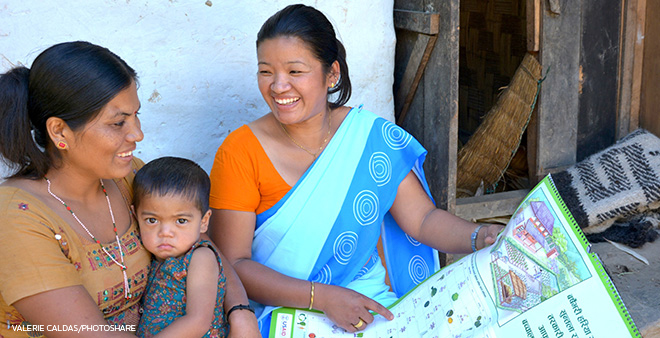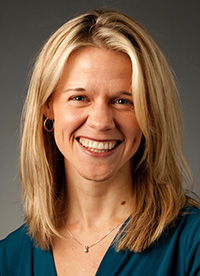
Many countries across the globe are facing a high burden of malnutrition, manifesting as undernutrition, overweight/obesity, and micronutrient deficiencies. Malnutrition is complex and multi-faceted, and requires a range of interventions to address it. In the past decade, progress has been made in achieving reductions in undernutrition. However, progress has not been sufficient to meet the Sustainable Development Goals (SDGs), the result of poor geographic coverage of critical nutrition interventions and a lack of adequate skilled human resources to deliver nutrition services.
Effective delivery of quality nutrition services is dependent on having qualified and competent service providers who can meet the needs of the populations they serve. To ensure they have the necessary nutrition competencies, health professionals, ranging from medical doctors and nurses to frontline workers, require a comprehensive education prior to service. Pre-service education and training is a sustainable and affordable way to develop capacity for nutrition service delivery and provides the foundation for the future health care workforce.
The Pre-service Nutrition Education and Training Webinar covered the current environment for pre-service nutrition education and training for health professionals, including gaps, challenges, and actions that need to be taken. The presenters shared their experiences and lessons learned from developed and developing countries in improving pre-service nutrition education and training for health professionals. These examples included partnerships, workforce capacity development, curricula design and development, and sustainability of interventions.
Presenters
 Lindy Fenlason, MD, MPH, PNS
Lindy Fenlason, MD, MPH, PNS
Senior Nutrition Advisor at USAID Bureau for Global Health, Office of Maternal and Child Health
Opening Remarks: Introduction to the Webinar on Pre-service Nutrition Education and Training.
Dr. Fenlason will introduce the webinar, highlighting the importance of pre-service nutrition education and training in addressing global malnutrition.
 Martin Kohlmeier, MD, PhD
Martin Kohlmeier, MD, PhD
Professor of Nutrition at the Medical School and the Gillings School of Global Public Health, University of North Carolina (UNC) at Chapel Hill
Professor Kohlmeier is also the director of the Human Research Core and the Nutrigenetics Laboratory at the UNC Nutrition Research Institute in Kannapolis; director of the Nutrition in Medicine project; visiting fellow of Wolfson College at Cambridge University, UK; and founding Editor-in-Chief of BMJ Nutrition, Prevention and Health
Presentation: Electronic Nutrition Education and Assessment of Instructional Success
Professor Kohlmeier will talk about the Nutrition in Medicine Project and how it has been used in medical schools and in training other health professionals. Nutrition in Medicine Project’s computer-based nutrition education is being used by most U.S. medical schools and at medical schools in 23 other countries. It is practical and effective as instructors can pick and choose components that complement other learning activities. The instruction can be adapted to ensure learners’ progress at their own pace and know the content at the end of each module. An important strength is that assessment of learning outcomes can be built into the modules.
 Sumantra (Shumone) Ray, MD, PhD
Sumantra (Shumone) Ray, MD, PhD
Professor of Nutrition at the NNEdPro Global Centre, University of Cambridge
Professor Sumantra is the Founding Chair and Executive Director of the Need for Nutrition Education/Innovation Programme (NNEdPro), Governing Body Fellow, Wolfson College Cambridge, and Co-Founder of the BMJ Nutrition, Prevention and Health. He is also a visiting professor at Imperial College London, Ulster University, Northern Ireland; adjunct professor, University of Waterloo, Canada; and Honorary Professorial Fellow at University of Wollongong, Australia.
Presentation: The NNEdPro Global Centre for Nutrition and Health: Mobile Teaching Kitchens in Urban Slums of India
Professor Sumantra will describe the work of NNEdPro, which has focused on developing adaptable and scalable models for medical nutrition education combining clinical/public health knowledge with leadership training to aid implementation in healthcare settings. Professor Sumantra will highlight his experiences with and lessons learned from implementing medical nutrition education and training in India.
 Alice Nkoroi, BSc, MS
Alice Nkoroi, BSc, MS
Country Project Manager Food and Nutrition Technical Assistance III Project (FANTA)/FHI 360, Ghana (2009–2013) and Malawi (2014–2017)
Presentation: Improving Pre-service Nutrition Education of Frontline Workers: Nurses and Midwifes in Ghana and Malawi
Ms. Nkoroi will describe the approach, methods, and lessons learned from FANTA’s work on improving pre-service nutrition education and training for nurses and midwives in Ghana and Malawi. FANTA worked with each host country’s government institutions including the Ministry of Health, Nurses and Midwifes Council, training institutions, and USAID and its implementing partners to implement a competency-based approach to improve pre-service nutrition education and training.
 Elizabeth Marino-Costello, MS, RD, FADA
Elizabeth Marino-Costello, MS, RD, FADA
Senior Program Manager, Academic & Career Advisor, Graduate Science Programs. Feed the Future Nutrition Innovation Lab at the Friedman School of Nutrition Science and Policy, Tufts University
Presentation: Nutrition Capacity Development to Meet National Priorities in Malawi
Ms. Marino-Costello will describe the context and process of developing and implementing a post-graduate and masters in dietetics program in Malawi. The program was developed in partnership with the Ministry of Health, University of Malawi – College of Medicine, and Lilongwe University of Agriculture and National Resources. In 2018, the Dietetics Program resulted in the first cohort of Registered Dietitians in the country who will practice at district and central referral hospitals.
Agenda
| Time | Topic | Presenter |
| 9:00–9:05 (EDT) | Opening Remarks and Introduction to the Webinar on Pre-service Nutrition Education | Lindy Fenlason, USAID |
| 9:05–9:20 | Electronic Nutrition Education and Assessment of Instructional Success | Martin Kohlmeier, University of North Carolina |
| 9:20–9:35 | The NNEdPro Global Centre for Nutrition and Health: Mobile Teaching Kitchens in Urban Slums of India | Sumantra (Shumone) Ray, University of Cambridge |
| 9:35–9:50 | Improving Pre-service Nutrition Education and Training of Frontline Workers: Nurses and Midwifes in Ghana and Malawi | Alice Nkoroi, FANTA/FHI 360 |
| 9:50–10:05 | Nutrition Capacity Development to Meet National Priorities in Malawi | Elizabeth Marino-Costello, Tufts University |
| 10:05–10:30 | Discussion, question-and-answer session |


